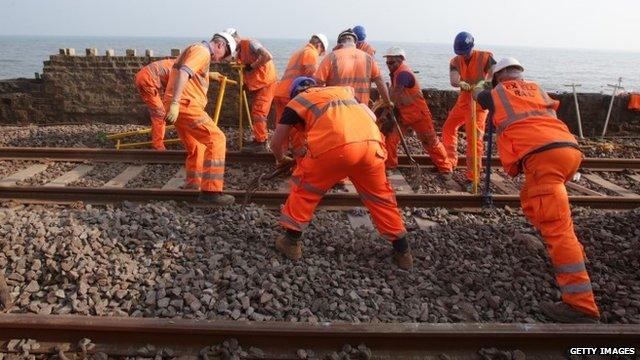More Dawlish rail line disruption predicted due to climate change
- Published
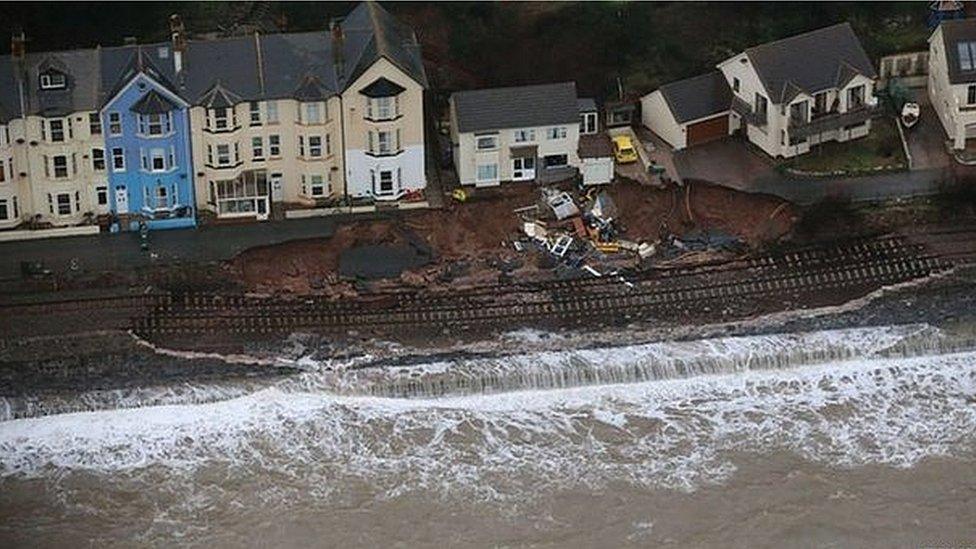
About 80m (262ft) of sea wall at Dawlish in Devon was destroyed by high tides and stormy seas in 2014
Climate change could disrupt up to a third of rail services travelling to and from the South West within the next 100 years, a study suggests.
The report focuses on the impact of sea level rises on the Dawlish to Teignmouth line which connects Cornwall and Devon to the rest of the UK.
The line was closed for two months in 2014 after it was destroyed by storms.
Network Rail said the study would be "key" to long-term developments.
The report, published in the Journal of Transport Geography, said that 10% of journeys on the line, which was rebuilt and reopened in April 2014, could be affected by 2040.
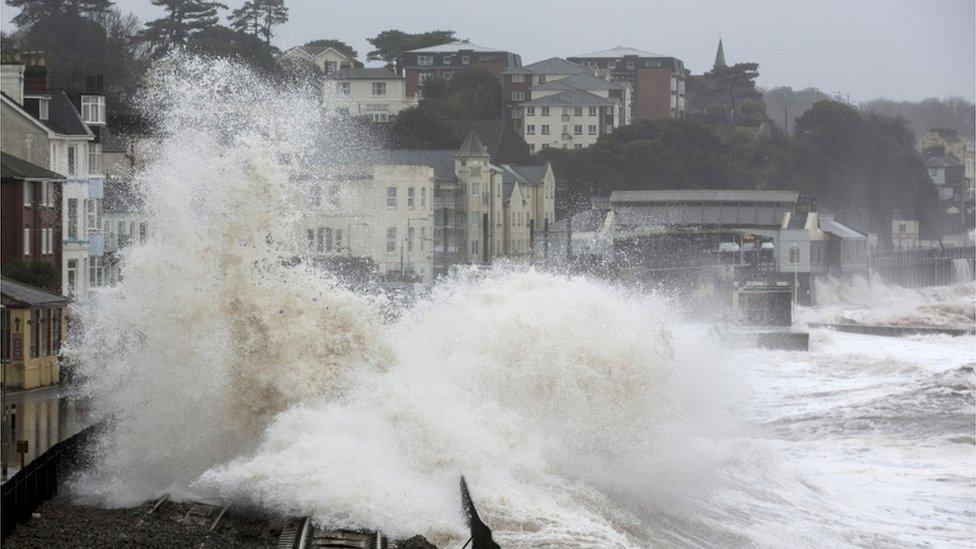
The report said there could be 120 incidents of adverse weather disrupting the line every year by 2100
The report said adverse weather disrupted the line about 10 days per year, but according to sea-level predictions that could rise to almost 40 by 2040 and up to 120 by 2100.
Academics from Plymouth University, the University of Leeds and the University of York identified a link between sea-level change and rail incidents over the last 150 years.
The academics said there could be similar implications for other vulnerable stretches of railway throughout Wales, south-east England, the Cumbrian coast and Scotland.
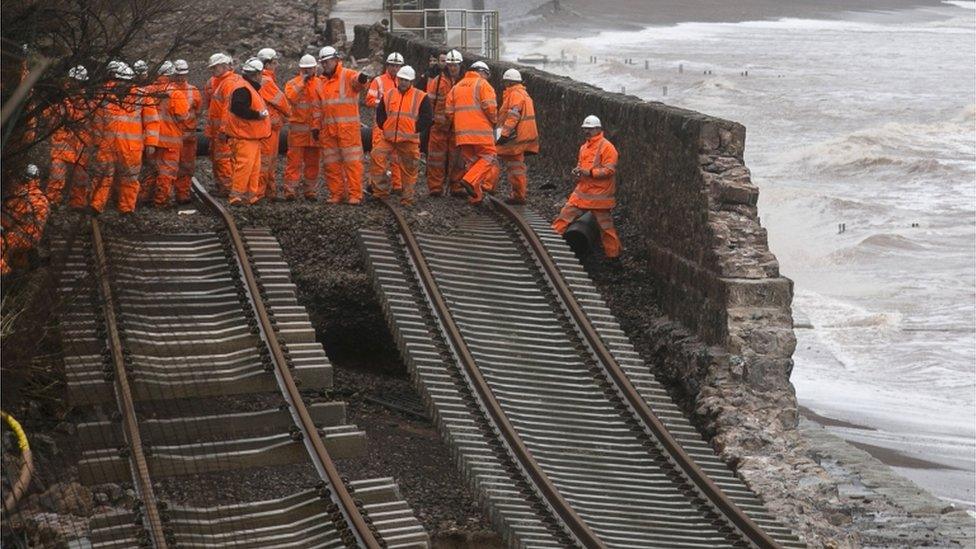
A section of the line was left dangling in mid-air after storms smashed through the defensive wall in 2014
Dr David Dawson, from the University of Leeds, said the long-term future of the line was "really worrying".
The report predicts diverting routes could potentially cost billions of pounds.
Network Rail said it hoped to develop "long-term interventions" to "secure the future" of the line.
The Department for Transport said it had invested £31m into improving the resilience of the route and was "exploring the potential for longer-term improvements in the area".
In January, the prime minister backed a new Okehampton railway route as the "most resilient" alternative to the vulnerable Dawlish line.
- Published12 November 2014

- Published11 November 2014

- Published5 February 2014
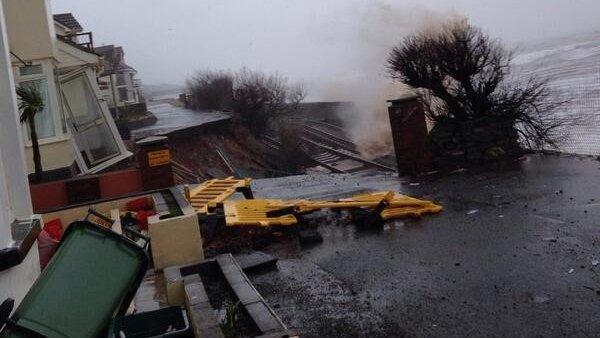
- Published4 April 2014
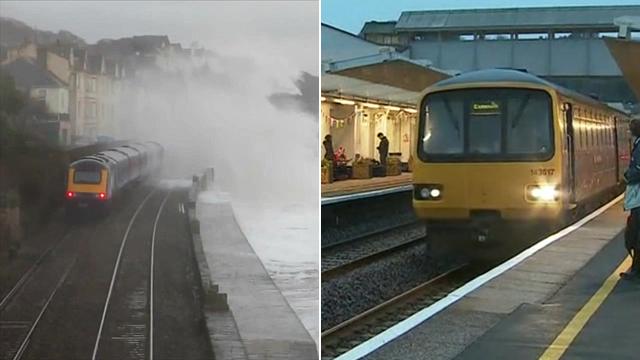
- Published4 April 2014
